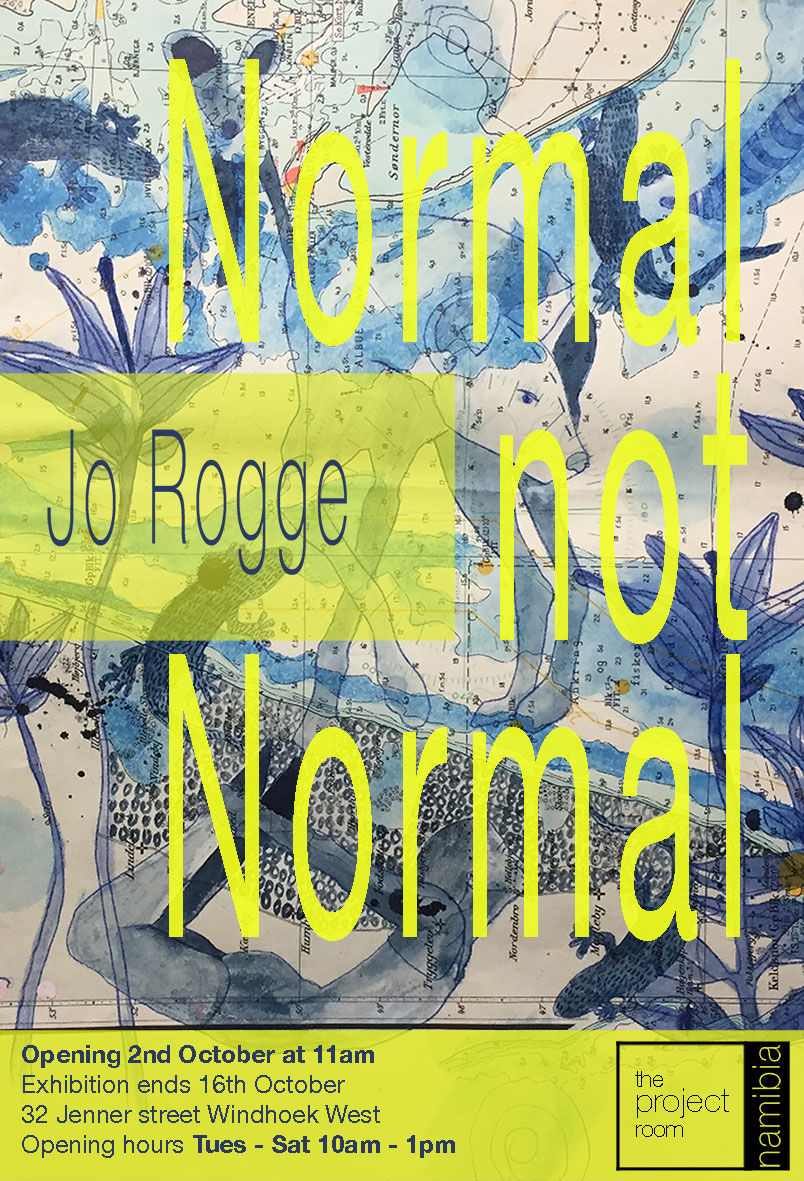Normal Not Normal
- Marita van Rooyen
- Sep 23, 2021
- 3 min read
Updated: Oct 2, 2021
Jo Rogge – On difference and belonging
“Where to begin when being an Afrikaner was a shame? Being German of any sort was shameful. Being a woman was a shame and it became increasingly obvious that being lesbian and, in current terminology, non-binary was, well, the cherry on top.”
– Jo Rogge, ‘Marij van Angola, Paul Kruger and the caretaker of the Stellenbosch Cemetery: territoriality, belonging and loss’
This excerpt from current writing by the artist Jo Rogge, on their interrogation of heritage and familial roots, rather than providing answers to their questions, posits more questions. It is a deep reflection on their position in the constructs of family, community and history.
Rogge’s fascinating narrative of ancestral beginnings while at times rollicking and humorous, is also tinged with pathos and sadness. While researching their matrilineal bloodline, Rogge uncovers their ties to a quirky line of characters, including two former presidents and dredging even further back in history, finally divulges the identity of the secret matriarch of their Afrikaner family, the slave woman Marij van Angola. Their German heritage is equally tainted with the shame of the past.
“People like to ask the question – ‘Where are you from?’”, Rogge says. “The notion of belonging, of community and identity is a fragile concept and it is weaponised against those who don’t fit in. Shame should not be a weapon because it is way too powerful. But here we are living in cultures where we regularly, habitually ‘soak one child in shame and give permission to another to hate’. Shame is an identity-shredding bullet.”
This has been the basis for much of Rogge’s multidisciplinary creative work over the past few years, expressed in a diverse collection of paintings, drawings, prints and objects that constantly question fundamental beliefs about gender and reflect on emotional experiences. Quoting the artist’s profile on Guns & Rain (a contemporary art space in Johannesburg that has been representing the artist since 2015), Rogge seeks to “create a new crucible for queer voices while simultaneously posing uncomfortable questions about difference and belonging."
As a celebrated advocate or artivist, for non-binary rights and interrogator of “the ‘othered’ body”, Rogge’s work is a personal reflection on displacement, family lineage and identity. In an interview on their recent body of work, ‘Unnatural Objects’ exhibited at Guns & Rain in June 2021, the artist states: “To be lost, spurned or discarded invokes anxiety. To be cared for dissauges fear. To have our histories erased, invokes despair. To acknowledge the past restores dignity.”
Working with a series of random objects collected along the Atlantic seashore, embellishing and decorating them with colourful thread and other found objects, the artist provokes the viewer with questions concerning acceptance for “equal rights and loving-kindness extended to the maimed, the disfigured, the other the queer”, and rhetorically asks, “If they are changed, dressed-up, made ‘pretty’, will they be made normative?”
“We can never know their story, where they came from. Away from their original context, meaning and purpose has been stripped away, leaving only form, shape and colour. To contemplate these objects is to reflect on history, memory, aging and the viscerality of belonging and loss.”
The ‘Body of Blueprints’, Rogge’s ongoing series of experimental carbon transfer monoprints and ink drawings, together with new paintings, is on show at the Project Room in Windhoek this July. In the time of lockdown, of isolation, contemplation of the meaning of life has sharply come into focus, has become paramount for us all. These works are lyrical meditations, a diversion, while the world is on pause, asking us to take stock of the world we live in and the hiatus of normativity that the COVID- 19 pandemic has inflicted on our lives.
Rogge has exhibited widely, locally and internationally. They are also founder of the NJE Collective which facilitates opportunities for artists in southern Africa, through exhibitions, mentorship and resources. The collective will feature new works by queer artists from Namibia and South Africa at the Turbine Art Fair in Johannesburg and the Cape Town Art Fair scheduled for later this year. In addition to their creative practice, Rogge works as a publications designer for organisations active in social development, HIV and human rights and teaches English online to adult learners in Taiwan. They live and work between Namibia and South Africa.







Comments